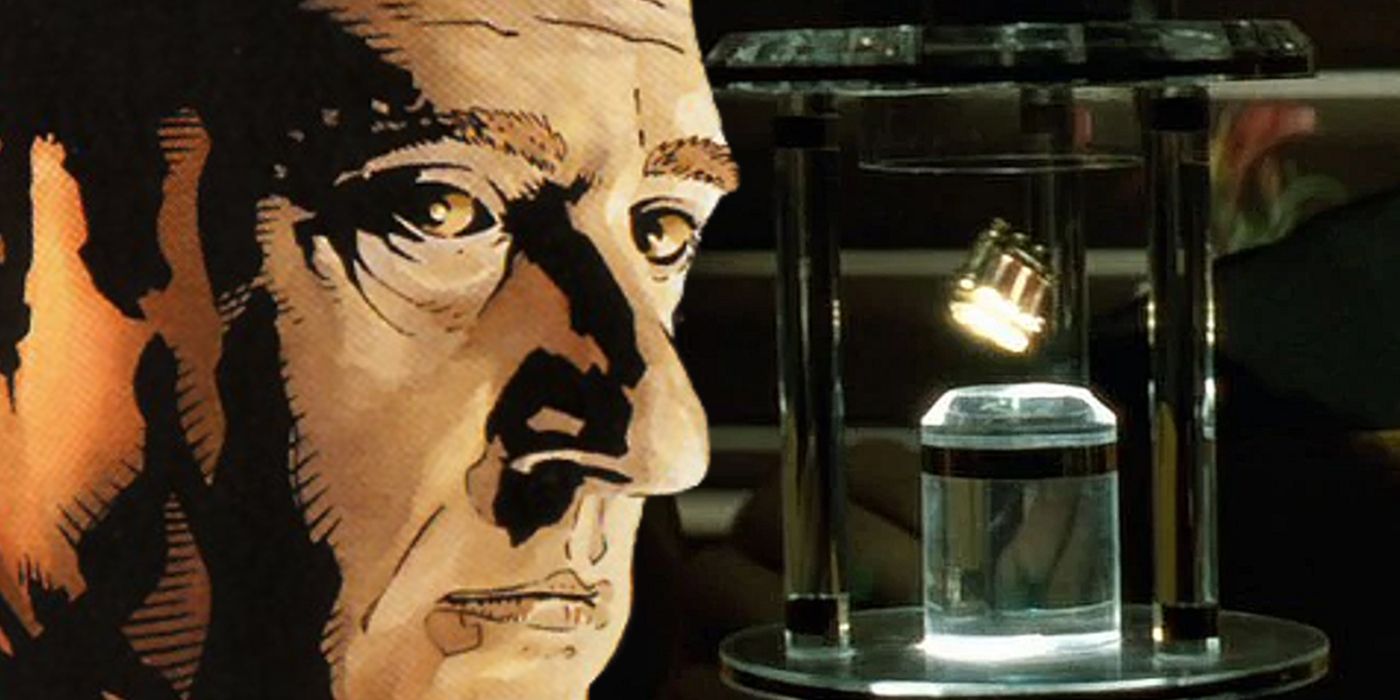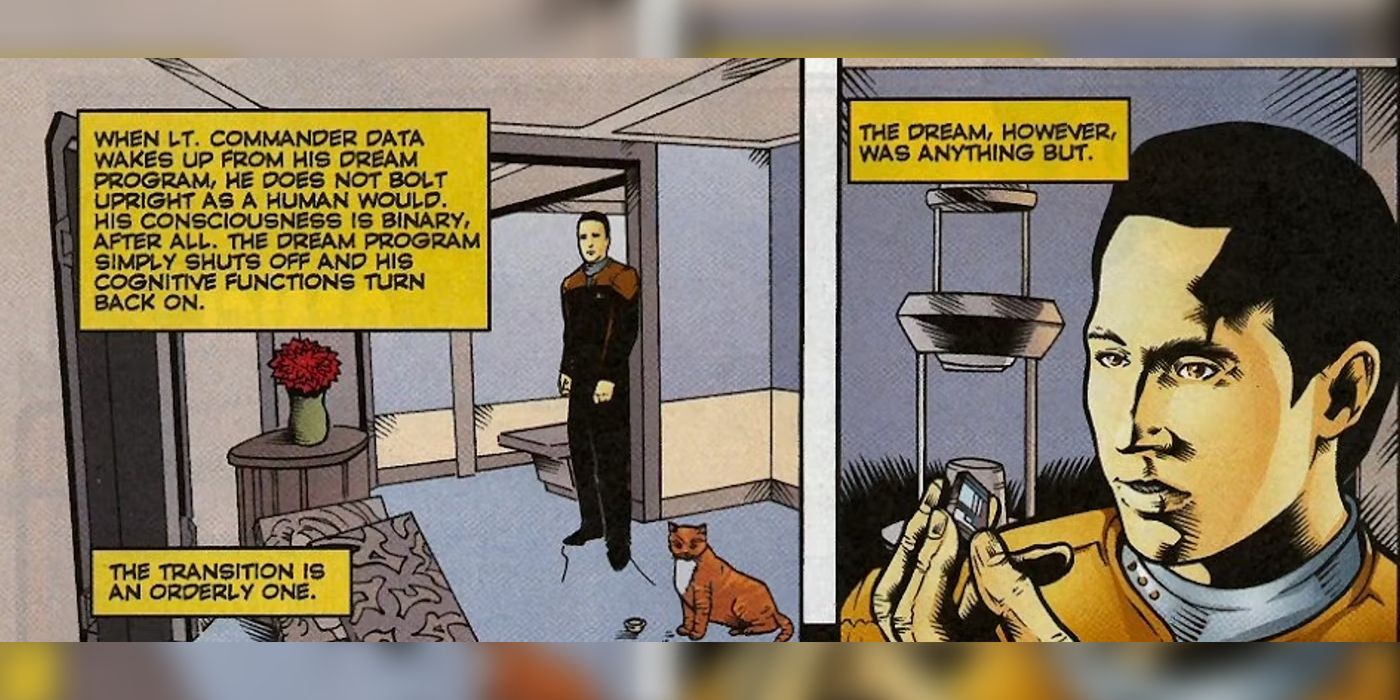The android Data once went farther in his interminable pursuit of becoming human than he did during a moment that been widely considered his most ambitious step yet in Star Trek: Generations when he installed the Emotion Chip.
Throughout his countless appearances in Star Trek: The Next Generation, Data experienced emotions through unconventional means. One of them was made possible by none other than the god-like entity Q and another by the Borg. But these were all isolated incidents. His greatest leap into humanity was undoubtedly when he had his best friend Geordi La Forge install the aptly named Emotion Chip into his neural net in the film Star Trek: Generations, so he could experience basic concepts such as humor. Even Data referred to this choice as possibly being his "only answer."
But Data not only actually felt humans emotions before the movie Star Trek: Generations but did so while in a separate state that normally only happens to humans, dreaming, in the four-issue miniseries Star Trek: The Next Generation - Perchance to Dream by writer Keith R.A. DeCandido, penciller Peter Pachoumis, inker Lucian Rizzo and letterer Ryan Cline with coloring by Wildstorm FX. The impossible first occurs in the miniseries' debut issue thanks to a mostly ambiguous effort referred to as the Dream Program, which was only supposed to make him see images in his head. And yet, Data says he felt things such as apprehension and fear. Then later, in the final issue, Data is actually affected by a terrifying weapon known as the Chova that eventually causes living victims to fall into madness after experiencing nightmares and hallucinations. The Chova initiates Data's Dream Program whereby the artificial life form begins reenacting events from his aforementioned dream. While not everything about Data makes sense in Star Trek, the android being able to dream is an interesting prospect.
The major difference, however, is that the emotions Data experiences only occur when he is "dreaming." In Generations, Data is "awake" where one instance of fear starts a chain reaction that causes the poor android to experience many unpleasant emotions. Fear first prevents him from saving Geordi from getting captured, which in turn begets grief, shame, and guilt for allowing his earlier emotion to get the better of him, and then finally relief and satisfaction when Geordi returns unharmed and tells Data that he was only acting human. Nothing as intricate as that occurs in Perchance to Dream, though, it's almost unsettling what Data dreamed. He first dreams of events that never happened, which were influenced by earlier situations. And even though he wasn't actively experiencing emotions while awake, he still felt the proper responses towards what he saw. The fact that these emotions developed during another human experience compounds the impact. It's also odd that a weapon that's specifically designed to affect biological beings is not only able to access a program but to also override it. Although the Dream Program replicates the dreaming experience, it is more or less like how a Hologram works in Star Trek. So Chova affecting Data's program is like a human cold infecting a computer program. The fact that the Chova has any impact on the Dream Program also creates the impression that Data may have literally dreamed like a person.
Regardless of which experience was more effective, Data's Dream Program in the comics serves as the perfect segue to when he eventually gets the Emotion Chip installed in Generations. Data even references and holds the Emotion Chip in Perchance to Dream, further underscoring the connection between the two occurrences, whereby the comics explored Data experiencing emotions while he was "asleep" and where Star Trek: Generations had this happen when he was "awake."


